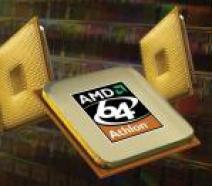OOPS! You forgot to upload swfobject.js ! You must upload this file for your form to work.
Moores Law extend the use of organic instead of silicon
![]()
|
xtreview is your : Video card - cpu - memory - Hard drive - power supply unit source |
|
|||
|
|
||||
 Recommended : Free unlimited image hosting with image editor
Recommended : Free unlimited image hosting with image editor
|
POSTER: computer news || MOORES LAW EXTEND THE USE OF ORGANIC INSTEAD OF SILICON |
DATE:2015-10-10 |
|
|
From 6 to 8 October a conference was held in Dresden SEMICON Europa (2015). The main topic was discussion at the conference was the development of flexible and transparent electronics. The use of such substrates for circuits is based on quite different materials than those used for the production of semiconductors, namely - on the material of organics. . Several key reports at the conference staff made the Dresden University of Technology (TU Dresden). University has received a grant from the German government in 2017 for $ 38 million. For the development of electronics using organic materials. On this topic employs 60 researchers in collaboration with 11 organizations with a total of 300 employees. It made a lot, and will do more. Use organic phases planned. First, as an adjunct to conventional CMOS process, and then a mixed technologies and then only one organics. The aim of development is put implementation of the transparent electronics for processing information, including the use for calculations of DNA and chemical signals. Organic chain will be highly adaptive and energy efficiency. To this end, the development of technologies involving mixed teams of physicists, chemists, biologists, computer scientists and engineers, electronics engineers. An interesting point shared development team leader for the development of compilers. Group creates organic computer chain and studying them intricacies of modern software environments from compilers to applications and operating systems. | ||
|
|
||
|
xtreview is your : Video card - cpu - memory - Hard drive - power supply unit source |
|
|
|
|
||
|
Xtreview Support  N-Post:xxxx Xtreview Support        |
MOORES LAW EXTEND THE USE OF ORGANIC INSTEAD OF SILICON |
| Please Feel Free to write any Comment; Thanks  |
Dynamic network action LawBreakers went on sale, a release trailer attached (2017-08-08)
The characteristics of NVIDIA Volta prove that Moores law is more likely to live (2017-07-10)
The release date of the network shooter LawBreakers (2017-06-13)
TSMC believes that the three-dimensional arrangement of chips will extend the operation of Moores law (2017-06-12)
Next week will be the PTA shooter Lawbreakers (2017-03-07)
Automakers expect easing in US law for the expansion of testing robocars (2017-02-14)
Prey Authors promise flawless work in PC-version of the game (2017-01-04)
The transition to 10-nm process will allow Intel to return to Moores Law (2017-01-03)
EUV-lithography may return to Moores Law (2016-11-30)
Chapter NVIDIA believe that artificial intelligence will grow faster than prescribed by Moores Law (2016-11-15)
Moores Law will become virtual (2016-11-04)
Steve Wozniak says that the uprising machines protect Moores Law (2016-10-07)
AMD calls not to write off Moores Law (2016-09-07)
Survive the world after Moores Law will help NVIDIA GPUs (2016-05-14)
Moores Law will return to a two-year cycle, as promised by Intel (2016-04-20)
a lawsuit because of the error 53 filed already against Apple (2016-02-13)
Predatory birds will catch the drones that violate the law (2016-02-08)
Seagate will face a lawsuit from the owners of defective hard drives (2016-02-03)
Intel is ready to make efforts for the return of Moores Law on track (2016-01-15)
iPhone 4s Members filed a lawsuit against Apple (2016-01-05)
![]()
To figure out your best laptops .Welcome to XTreview.com. Here u can find a complete computer hardware guide and laptop rating .More than 500 reviews of modern PC to understand the basic architecture


7600gt review
7600gt is the middle card range.
We already benchmarked this video card and found that ...

 geforce 8800gtx and 8800gts
geforce 8800gtx and 8800gts  Xtreview software download Section
Xtreview software download Section  AMD TURION 64 X2 REVIEW
AMD TURION 64 X2 REVIEW  INTEL PENTIUM D 920 , INTEL PENTIUM D 930
INTEL PENTIUM D 920 , INTEL PENTIUM D 930  6800XT REVIEW
6800XT REVIEW  computer hardware REVIEW
computer hardware REVIEW  INTEL CONROE CORE DUO 2 REVIEW VS AMD AM2
INTEL CONROE CORE DUO 2 REVIEW VS AMD AM2  INTEL PENTIUM D 805 INTEL D805
INTEL PENTIUM D 805 INTEL D805  Free desktop wallpaper
Free desktop wallpaper  online fighting game
online fighting game  Xtreview price comparison center
Xtreview price comparison center Lastest 15 Reviews


Rss Feeds
Last News
- The new version of GPU-Z finally kills the belief in the miracle of Vega transformation
- The motherboard manufacturer confirms the characteristics of the processors Coffee Lake
- We are looking for copper coolers on NVIDIA Volta computing accelerators
- Unofficially about Intels plans to release 300-series chipset
- The Japanese representation of AMD offered monetary compensation to the first buyers of Ryzen Threadripper
- This year will not be released more than 45 million motherboards
- TSMC denies the presentation of charges from the antimonopoly authorities
- Radeon RX Vega 64 at frequencies 1802-1000 MHz updated the record GPUPI 1B
- AMD itself would like to believe that mobile processors Ryzen have already been released
- AMD Vega 20 will find application in accelerating computations
- Pre-orders for new iPhone start next week
- Radeon RX Vega 57, 58 and 59: the wonders of transformation
- ASML starts commercial delivery of EUV-scanners
- The older Skylake processors with a free multiplier are removed from production
- Meizu will release Android-smartphone based on Helio P40
- AMD Bristol Ridge processors are also available in American retail
- The fate of Toshiba Memory can be solved to the next environment
- duo GeForce GTX 1080 Ti in GPUPI 1B at frequencies of 2480-10320 MHz
- New Kentsfield overclocking record up to 5204 MHz
- Lenovo released Android-smartphone K8

HALO 3 HALO 3 - Final Fight!

PREY Prey is something you don t often see anymore: a totally unigue shooter experience.

computer news computer parts review Old Forum Downloads New Forum Login Join Articles terms Hardware blog Sitemap Get Freebies


